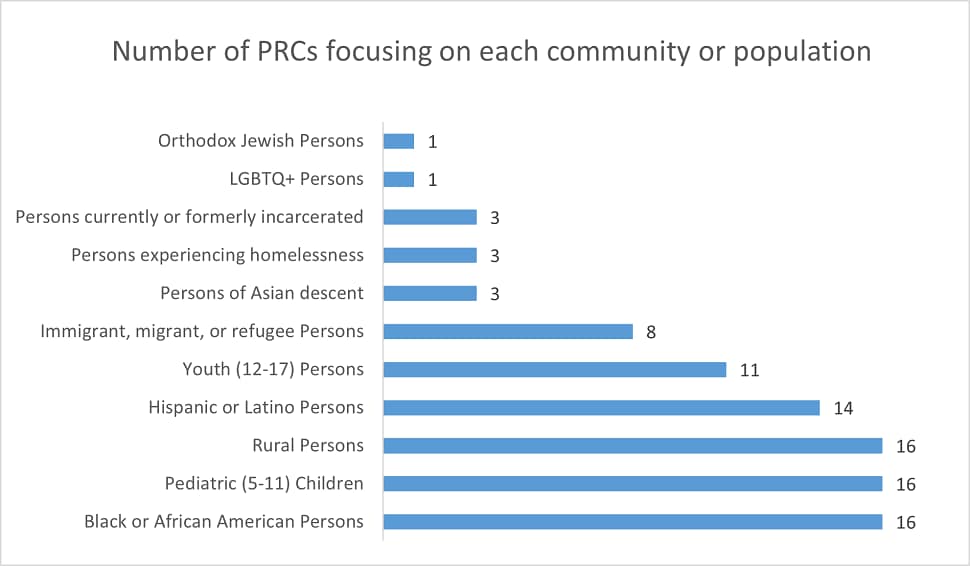PRC Vaccine Confidence Network (PRC VCN)
In April 2021, CDC funded all 26 Prevention Research Centers (PRCs) to create the PRC Vaccine Confidence Network (PRC VCN), focused on increasing vaccine confidence and uptake. The PRCs are academic research centers in the United States that study how people and their communities can avoid or reduce the risks for chronic diseases and other leading causes of death and disability. PRCs work to identify public health problems and to develop, test, and evaluate interventions that can be applied widely, especially in communities experiencing health disparities.
The Vaccinate with Confidence Framework
CDC developed the Vaccinate with Confidence framework to guide efforts to build confidence in the COVID-19 vaccines, the providers who administer them, and the science behind vaccine recommendations. The Vaccinate with Confidence strategy aims to:
- Build trust.
- Empower healthcare workers.
- Engage communities and individuals.
The PRC VCN is using the Vaccinate with Confidence framework to increase COVID-19 vaccine confidence and uptake in diverse communities. The PRCs will gain insight into effective social and behavioral interventions to build the evidence base for future vaccine confidence strategies.

The Power of PRCs’ Community Relationships
The PRCs are uniquely positioned to explore vaccine hesitancy in specific populations because of their experience in community engaged research and ability to build trust with the communities they serve. Their community partners are trusted messengers from local health departments and community-based organizations. These relationships make PRCs ideal partners to help increase vaccine confidence and uptake because they already understand the needs and priorities of their communities. By assessing barriers and collaborating with trusted community partners, PRCs—both individually and as a network—are providing valuable insight into the social and behavioral factors contributing to COVID-19 vaccine hesitancy.
PRC VCN Populations of Focus and Intervention Strategies
To increase confidence and generate demand for COVID-19 vaccination, each PRC identifies specific communities or populations that are hesitant or unable to get the COVID-19 vaccine. Some PRCs focus on multiple populations.

PRCs use a community-engaged approach to develop strategies to address the specific behavioral, informational, and structural barriers identified by each population of focus. Partnering with trusted community messengers, they use key intervention methods to generate demand and confidence for the vaccine. The following examples represent some of the highlights of the PRCs’ work during the pandemic.
- Community Engagement (e.g., engaging and collaborating with community partners, health care workers, trusted leaders, and messengers).
- Increased Access to Vaccination (e.g., mobile sites, youth, and senior organizations, peer leaders, and virtual events).
- Tailored Messaging (e.g., accurate, clear, and consistent messaging through local web-based communications, social media, and printed materials).
Sharing Successes and Lessons Learned
A cornerstone of the PRC VCN is its ability to quickly build trust by using a community-engaged approach to learn about community vaccine concerns and develop interventions in response. CDC is working with the PRC VCN to evaluate these efforts and document lessons learned and promising practices resulting from PRC VCN activities. The information will be shared widely so that other community-based organizations can use successful approaches to increase vaccine confidence and uptake in their own populations of focus.
For more information contact prccovid@cdc.gov